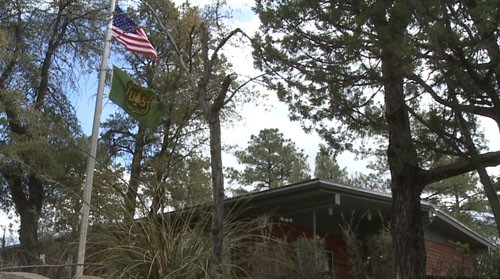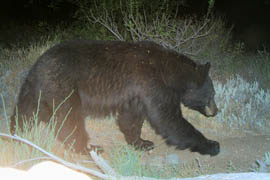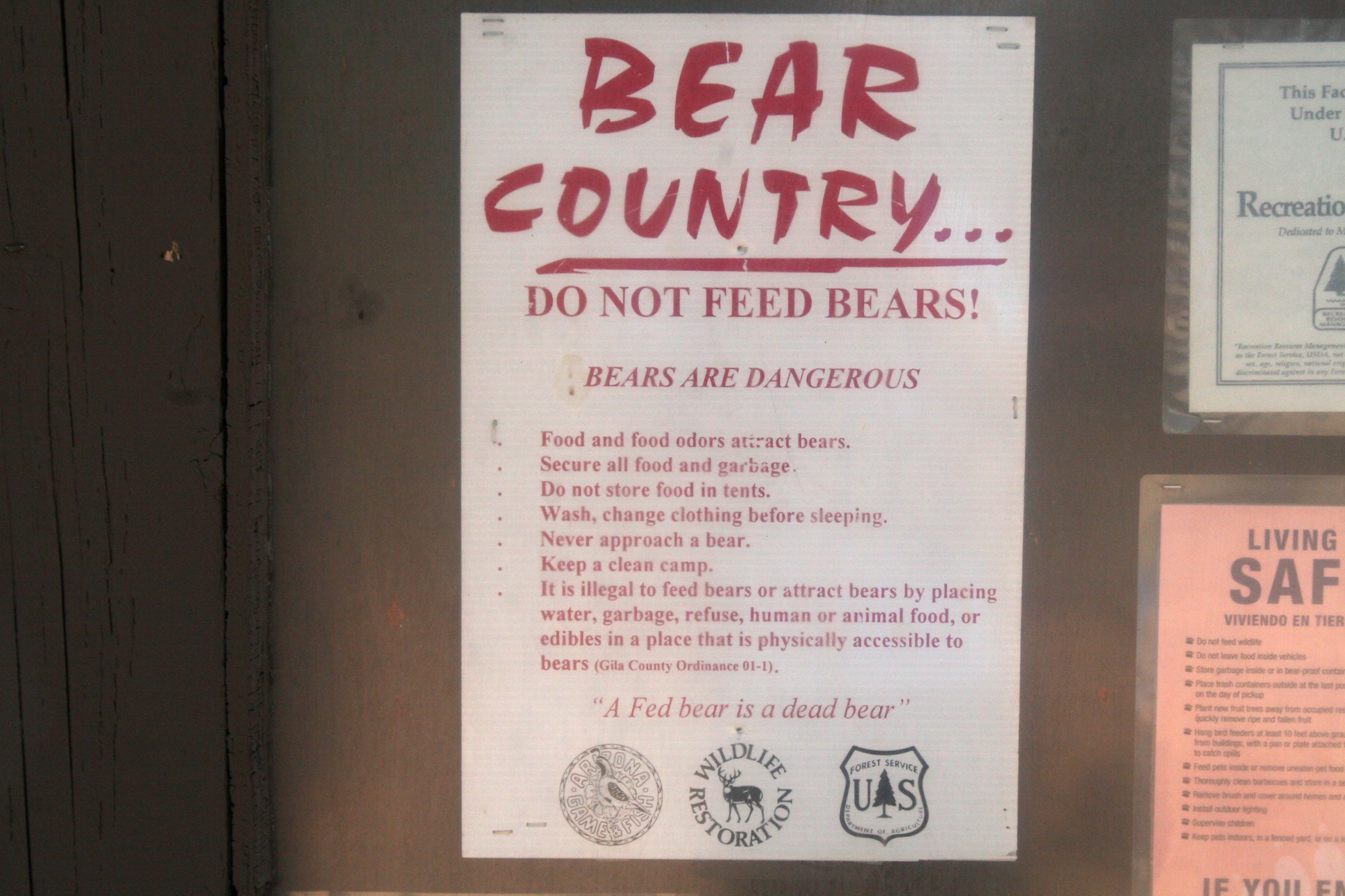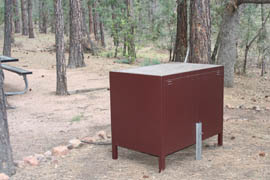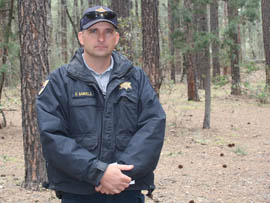Cronkite News has moved to a new home at cronkitenews.azpbs.org. Use this site to search archives from 2011 to May 2015. You can search the new site for current stories.
Officials making Payson-area campsites safer after last year’s bear attacks
PHOENIX – Just before sunrise at a campground near Payson, Carly Stoltenberg and her husband, Steve, woke to their friends screaming, “Bear! Bear!” from a nearby tent.
“My initial reaction was just disbelief,” the Gilbert resident said. “It didn’t seem real to me.”
Thanks to a park ranger’s instructions on bear safety the night before, the Stoltenbergs and their friends scared off the young male black bear by waving blankets, yelling and honking a car horn.
There have only been 10 bear attacks in Arizona since 1990. But the attack at Ponderosa Campground on June 24, 2012, marked the second incident at that very campsite and the third in the state over a one-month span.
A camper at the next site over from the Stoltenbergs wasn’t as fortunate, suffering lacerations to his head, legs and arm but surviving the attack.
In response to last year’s attacks, the Arizona Game and Fish Department is working with the U.S. Forest Service to bear-proof Payson-area campgrounds and raise awareness about the dangers that may arise any time for those camping in bear country.
“The big thing is to be bear-aware,” said Rachael Hohl, recreation manager for the Tonto National Forest’s Payson Ranger District.
As part of the “Bear Aware” campaign, signs, pamphlets and brochures with information and safety tips can now be found throughout Ponderosa and other area campgrounds.
So far, the Forest Service has equipped 27 of 260 area campsites with metal storage containers for food, while campgrounds have bear-proof trash receptacles, Hohl said.
Dave Daniels, Payson wildlife manager for Game and Fish, said keeping scents that attract bears out of campsites is a big part of the campaign.
“Don’t bring your Snickers bars or dirty diapers into your tent,” he said. “Bears, or any animal with a large rostrum (nose), will be attracted by smell, so that means food, garbage or anything it thinks it can eat.”
Daniels cited last year’s severe drought as the main reason for so much bear activity in such a short time.
“The water not only provides drinking water for them but it also provides food for them because all the plant life they eat needs rain to grow,” he said. “So when there’s a drought, there’s a lack of water and food and that’s when some of your wildlife starts to wander.”
The drought is less pronounced this year, Daniels said, and because the sites are more bear-proof now, campers should not be deterred from visiting the area.
According to wildlife experts, black bear attacks are rare and fatal attacks are extremely uncommon. A woman walking her dog late at night was fatally mauled in Pinetop two years ago; before that, Arizona’s last documented fatality was in the late 1800s.
If a bear does attack, officials say it’s important to stand up, raise your arms and shout while backing away.
Carly Stoltenberg said she and her family took all the necessary precautions to avoid attracting bears to their campsite by keeping food in their vehicles. That didn’t stop the hungry bear from wandering in, however.
No one expected it, but when it happened, Stoltenberg was thankful for the park ranger’s lesson the night before.
“The park ranger came around and talked to us about bear safety and we looked at the pamphlet and really made a joke out of it,” she said. “But I think knowing that information, especially if you’re camping with young children, is really what saved our lives.”
The offending bear still hasn’t been found, but officials are keeping an eye out for it.
“If he is still out there, he’s likely to return to doing what he knows, which happens to be raiding campgrounds and causing these kinds of problems,” said Randy Babb, information and education program manager for Game and Fish’s Mesa region.
Hohl noted that the possibility of running into a bear is remote.
“Mostly what you see of bears is their butts because they’re usually running away,” she said. “That being said, it’s important to remember that as humans, we’re guests in a bear’s environment.”
Even after witnessing the aftermath of a bear attack, Stoltenberg said she wouldn’t let the experience keep her from going camping again.
“I really applaud Ponderosa for putting those precautions in place,” she said. “I think that having those extra safety precautions would make it more likely that I would go again.”

